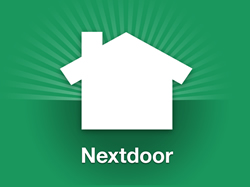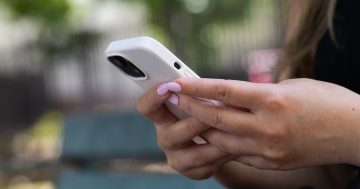Jack Delaney* says a new social network is helping build stronger and safer neighbourhoods.
 Having already conquered the United States and Europe, the world’s leading platform for local communities is bringing its unique service to Australia.
Having already conquered the United States and Europe, the world’s leading platform for local communities is bringing its unique service to Australia.
When I first heard about Nextdoor, I immediately wondered one thing: why on earth would I want a social media network that helps me get to know my neighbours?
I mean, I can barely stand the moderate interactions I have with them now.
The old lady next door floods our doorstep with bags of her homegrown spinach, the neighbours over the back seemingly keep their children in the backyard rather than take them to school, and the number of cats in the windows of the house across the road is worrying to say the least.
Don’t even get me started on the man who lives in a school bus parked in his driveway.
However, as I interacted with and learned more about Nextdoor, I realised the site has a valuable mission that can truly make our communities better, safer and happier places.
The way it works is this: you sign up, choose your location and Nextdoor automatically recognises your neighbourhood.
From there, neighbours can connect to share details about all sorts of things.
Maybe there’s been a spout of break-ins, or someone has lost a pet.
Perhaps you need a recommendation on a good babysitter or tradie.
You can even organise events or spread the word about an amazing sale at the local supermarket.
While I can’t see value in this for myself personally, I can imagine many parents and grandparents who will.
There’s certainly utility in a purpose-built social network being adopted as a kind of virtual community noticeboard, and it’s not as idealistic or utopian as it first sounds.
The beautiful thing about Nextdoor is that it restricts communication and access to those who live within a certain distance.
They’re serious about this, too.
You need to verify your account and home address by phone call or a post card that will have a verification code attached.
“Nextdoor is a place where neighbours can take online conversations offline to build deeper connections and stronger communities in the real world,” said Nirav Tolia, co-founder and CEO of Nextdoor.
“The local pride and sense of mateship shared by Australians is perfectly aligned with the practical ways our platform enables richer personal connections in real life.”
It could just be coming at the right time, too.
The rise of the interstate highway, the shift from the agricultural era to the industrial, the rise of the nuclear family and now the internet has made modern life, more than any other time in human history, increasingly individualistic.
With all the distractions of modernity — the internet, video games, TV shows, movies, group chats, e-books, real books, Facebook, Twitter, Snapchat, you name it — it can be easy to live in your own bubble.
Nextdoor is looking to pop it and remind humanity that communities aren’t a luxury — they’re a necessity for a healthy lifestyle.
According to research undertaken by Research Now, only a quarter of Australians say they have good relationships with their neighbours, while 75 per cent say they would prefer deeper connections with them.
Only 46 per cent know the names of up to three neighbours, and 70 per cent aren’t connected with any of their neighbours online.
It seems there’s a void Nextdoor is capable of filling.
Since the beta launched only three weeks ago, 350 neighbourhoods have already been created on the platform.
Given over 200,000 neighbourhoods have been created across eight countries worldwide — and the company is valued at A$2.2 billion — it’s safe to assume that there’ll be more to come.
“Building connections and communities is a universal human need,” Tolia continued.
“While technology continues to enable more people to connect virtually around the world, fostering real world connections that lead to deeper interactions and shared experiences is a desire that’s become more profound than ever before.”
So, if you’re ever in Western Sydney, join my community — I know someone who grows great spinach.
Nextdoor is free and available across Australia now via the Nextdoor website and apps available on iOS and Android.
* Jack Delaney is an editor at Techly.
This article first appeared at www.techly.com.au.











